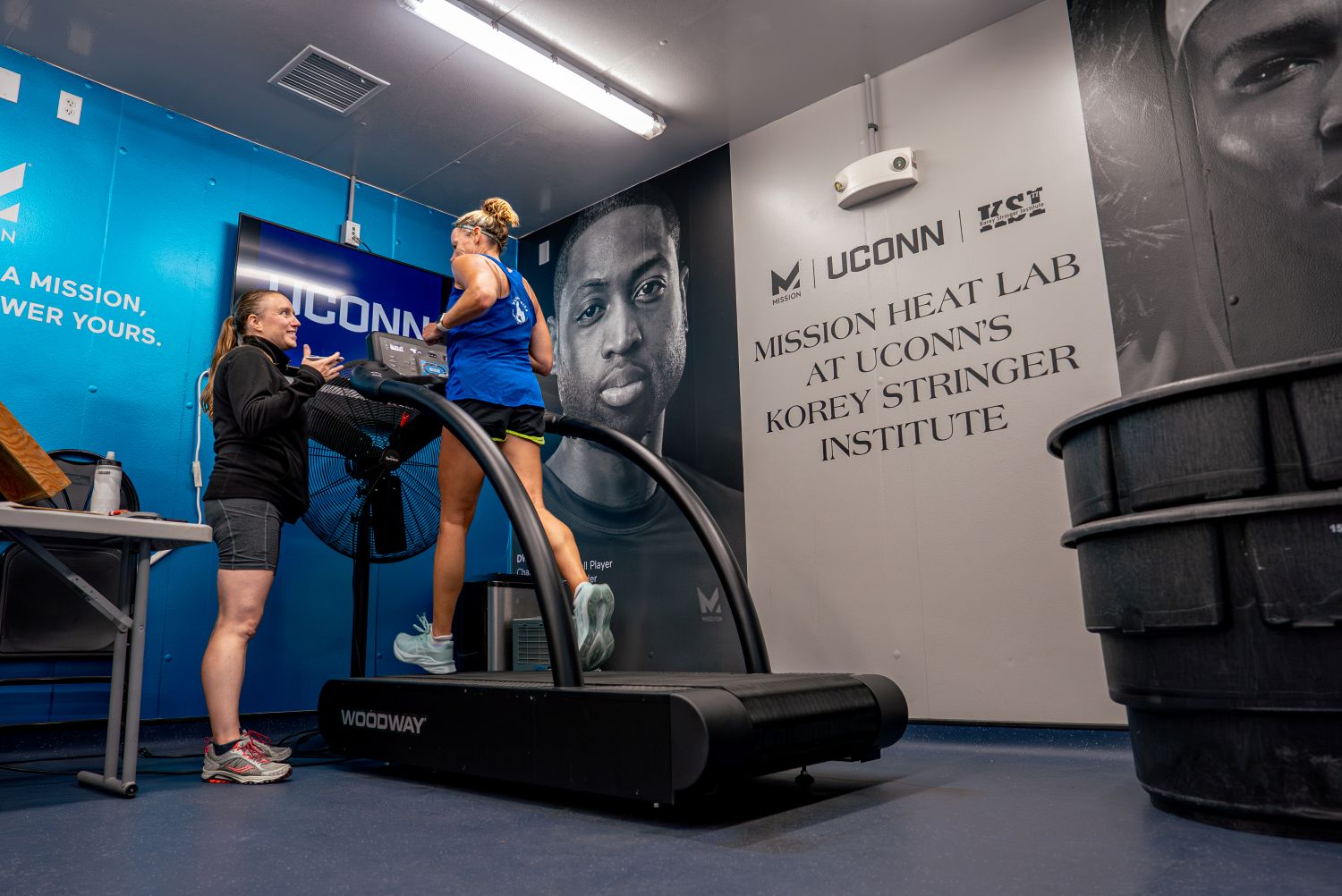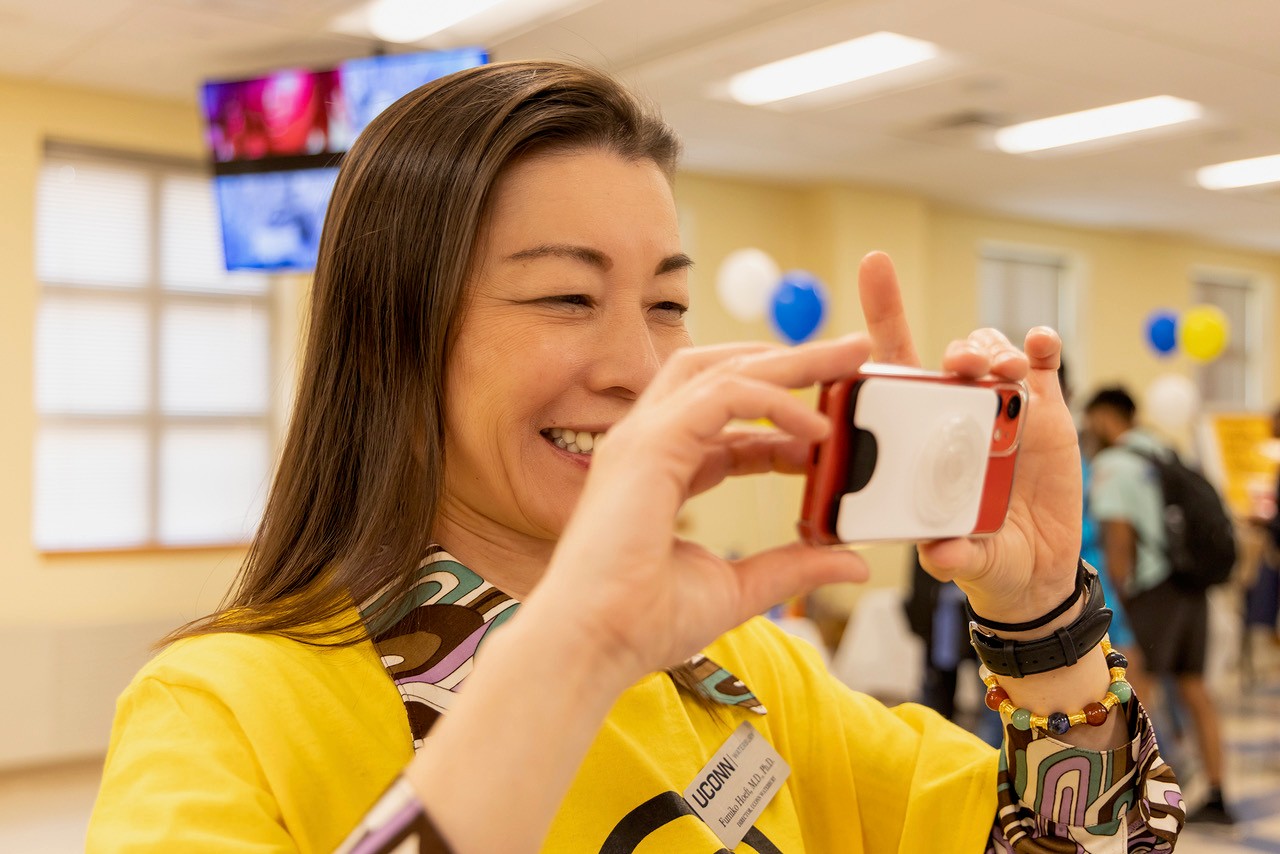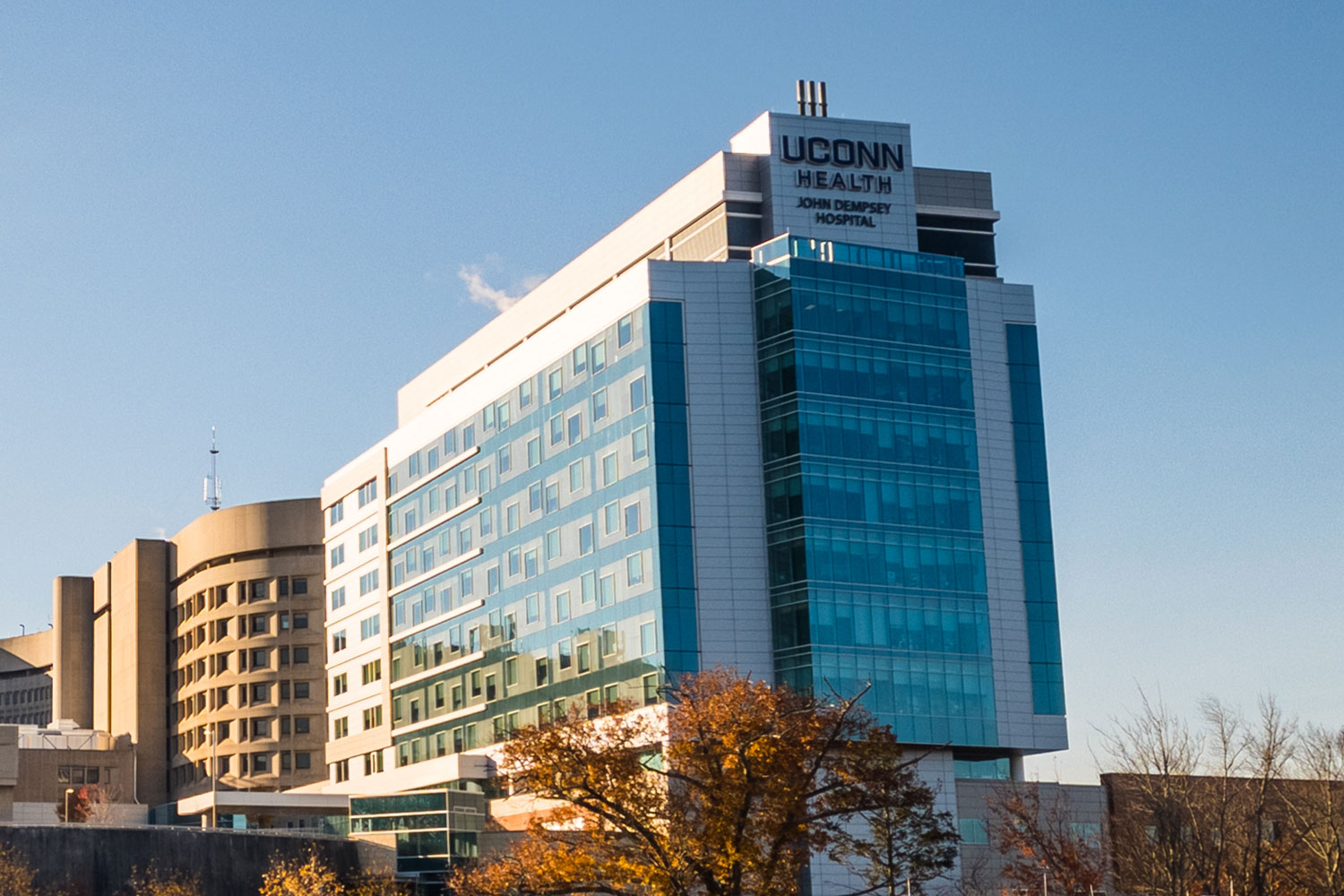
Army Lt. Col. Scott T. Fleeher is bringing his experience in Bosnia, Afghanistan, and with the diplomatic corps in Greece to his new job as ROTC commander at UConn.
“I love deploying, and if I didn’t have a wife and children, I’d be in Afghanistan now,” he says.
Fleeher came here from Athens, Greece, where he was a defense attaché at the U.S. Embassy. Before that, he spent 10 months in Kandahar, Afghanistan. The only thing he doesn’t miss about that country is the desert heat.
“I love this weather,” he said in an interview in his Hall Dorm office on a cold rainy day in Storrs.
An ROTC alumnus himself of Florida Institute of Technology, Fleeher graduated from East Hartford High School and has a master’s degree from Boston University in international relations. He believes in the opportunities that ROTC provides students, through scholarships and rigorous physical and military training.
In 2009-10, ROTC provided $1.5 million in scholarship benefits to Connecticut schools, including $500,000 to UConn, he says.
Fleeher likens the experience of an ROTC cadet to that of a varsity football or basketball player, in terms of training and time commitment. Cadets have 5:45 a.m. exercise drills three times a week, military science classes, a four-hour leadership lab on Fridays, and group training exercises and drills in day and night land navigation, patrolling, and practice missions.

Twice a year they attend a 48-hour focused field exercise that begins at 5 a.m. on Saturday. They sleep in tents and practice combat readiness skills. Last fall’s exercise was at a military reservation in Niantic, where they were flown in helicopters piloted by UConn alumni in the Connecticut Army National Guard.
In the summer after their junior year, cadets take a leadership and assessment training course at Fort Lewis, Wash. They may also take airborne (paratrooper) training at Fort Benning, Ga., attend Air Assault School at Fort Campbell, Ky., and take northern warfare training at Camp Greely, Alaska.
In a regional Ranger Challenge last fall at Camp Smith, New York, which Fleeher calls a “grueling competition” of basic soldiering skills, cadets from UConn, coached by Army Sgt. 1st Class John Maynard, placed third out of nearly 50 teams. In last fall’s Army 10-Miler, the largest 30K road running race in the U.S., an ROTC cadet from Sacred Heart University who is part of the UConn battalion was the fastest cadet in the country. The team placed third out of 59 ROTC teams, and a UConn cadet from the School of Engineering, Dan Le, was the ninth fastest ROTC runner in the race.
At UConn, as at some other universities, ROTC, or the military science department, is part of the College of Liberal Arts and Sciences. But Fleeher’s unit, the Nathan Hale Battalion, includes students beyond the 52 at the UConn campus. The unit has 130 cadets in all, including one student at Yale and others at Southern and Eastern Connecticut state universities, Sacred Heart, the University of Hartford, and elsewhere. Fleeher travels to southern Connecticut once a week to work with those farthest afield.
The battalion has a dozen or more staff members at Storrs, all of whom are multiple-tour combat veterans. Three staff members are now on active duty, some are retirees, and others are Army civilians or members of the National Guard.
Army Master Sgt. Joseph Corley, a cavalry scout with combat experience in Iraq and Afghanistan, is the senior military instructor for underclassmen. Fleeher teaches seniors the military science curriculum, which includes classes in leadership, effective writing, military decision-making, risk management, and the laws of war.
When cadets graduate, they are commissioned as second lieutenants. They may report to active duty, the Army Reserves, or a National Guard unit.
Fleeher himself was an aviation officer who flew Apache helicopters for the first 10 years of his career, serving at Fort Bragg and in Germany and Bosnia. He then became a foreign area officer, putting his international relations training to work. He is fluent in Serbian-Croatian and he also studied Greek.
That academic bent will make him at home in his new university setting: On his desk is the current issue of Foreign Affairs.






